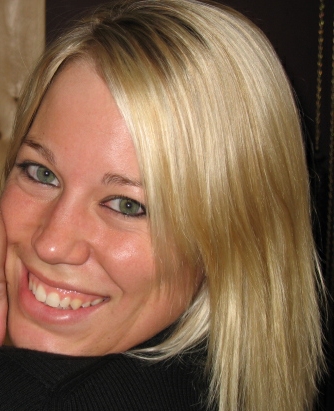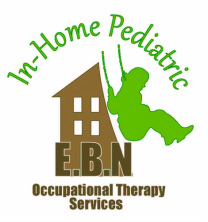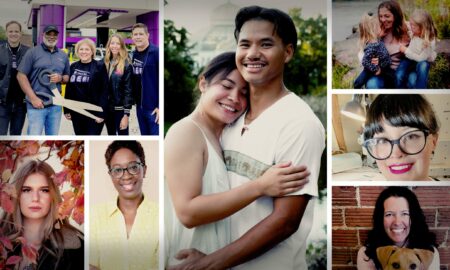

Erin Beussman MOT, OTR/L shared their story and experiences with us recently and you can find our conversation below.
Hi Erin, thank you so much for joining us today. We’re thrilled to learn more about your journey, values and what you are currently working on. Let’s start with an ice breaker: What do you think is misunderstood about your business?
The pediatric OT practice, itself, is often times misunderstood and miscategorized. I think partially this is because the world of occupational therapy is so big, open, diverse, and has so many amazing areas that an occupational therapist can support individuals. OT can serve people in a variety of settings, at a variety of ages, and even within there, there are multiple types of OT that can be practiced! It’s a big, wonderful practice that encompasses the entire age-span. Specifically in regards to my business, I think typical misunderstandings can revolve around the type of therapy that I provide. Because I choose to provide home-based, private-school based, and daycare-based services, even within those different envionments how I practice can be misunderstood. Because my practice is inspired and guided by the DIR/Floortime philosophy, my OT practice looks a LOT different from that of, say, a pediatric clinic offering OT services. I take a different approach to therapy, which is so needed in the world! All therapy should never look the same because different approaches are best for different individuals/families, and that’s what’s so great about having options. However, I make sure that I am fully transparent with any new client looking at my services how my occupational therapy programming will look from day one to make sure that it feels like the right fit for that family!
Can you briefly introduce yourself and share what makes you or your brand unique?
I have been a pediatric occupational therapist for over 20 years, working in the clinical settings within the Minneapolis metro area before decididing to go out on my own and open my own private practice more than 12 years ago. As a pediatric occupational therapist, I work with children and their families to help a child grow in terms of motor development, sensory processing integration, and emotional regulation. All goals are tied to a child’s main occupation, which is either play or school development, depending on the child’s age. My profession is unique in that there are many different approaches to practicing occupational therapy across the lifespan, and even within the pediatric world, one will find that each provider/clinic/service will have a different approach or philosophy when it comes down to how the therapy is being conducted.
For me, I consider myself unique in this area as I am guided by the DIR/Floortime philosophy as I perform my therapy. This makes my OT practice very developmental in nature (meaning always looking at the concerns presented from a developmental/bottom-up approach) versus more behavioral (where the goal is to address the concern from a top-down approach). There are always a lot of “why’s” I am looking at in my therapy program. I also focus my therapy on the fact that every child is unique and every therapy program should be individualized – not every therapy activity is the right one for each child. And each child has his or her own individual profile that must be considered! Finally, my approach encompasses the passion and absolute MUST that our program is relationship-based. This includes developing a strong relationship with the child, the family, and encorporating the family directly into each and every session to help better understand the therapy and to encourage more understanding in follow through ideas. A child must feel safe and trusting with their therapist for any growth to happen! These guidelines that I base my private practice on are very important to me, and, I believe and hope, bring a unique OT experience for the families.
Great, so let’s dive into your journey a bit more. What did you believe about yourself as a child that you no longer believe?
As a child and the youngest of 3 children, I often saw myself as needing to prove my worth, my intellegence, my capabilities. I have an amazingly supportive family and grew up with much older siblings. Watching them as a young child as they grew and blossomed in their high school and college careers and the paths that they chose, their successes, and their achievements, I often found myself dreaming that I, too, could be as great as I perceived they both were. Never ever did my family compare one another. Never ever did my parents inflict a sense of expectation from me that I needed to succeed at the level of my siblings. Rather, I heard it from other educators and figures withing my own schooling, unfortunately. I would hear things like, “This was never hard for your brother!” or “Your sister’s time on that was far faster than you – look at her records!” and for me, for whatever reason, I let their words and opinions matter and overshadow what my own faimly believed. As a child, I believed that I had to prove myself to be worthy. I believed I needed to show that I was as good as others. This made my work ethic incredibly hard, but, I often reflect, sometimes so hard that I missed out on joy, as well, at times.
Now that I am an adult, a wife, a mother, and own my own private practice, I can still look back on those specific moments with past teachers, coaches, and professors, even, and see how wrong they were, and how wrong it was that the world was even projecting this message. I know that my siblings, just as my parents, are all amazing people with amazing stories and amazing successes. But I see that I, too, have carved my own path towards being successful, despite what any middle school math teacher, or high school cross country coach, or even college OT professor ever said to me. And I carry those memories and messages with me still, but now I use them to change the narrative and change the cycle for myself and more importantly, my own children.
What’s something you changed your mind about after failing hard?
After years working within the pediatric clinical “world” in the Twin Cities metro area, I started to do my own professional training within the DIR/Floortime philosophy, which is a philosophy that encompasses child development for almost any profession to study and then apply. The Floortime philosophy can be used in educating children, in therapies, in family counseling, in how doctor’s work with their patients, etc. It is not an occupational therapy-specific philosophy, but one that when I started reading about it and then started studying it, I just knew I needed this to guide my occupational therapy practice.
However, in my journey to learning more about DIR/Floortime, it wasn’t always best understood within the clinical settings. Not every supervisor or clinical owner I worked under during this time really understood or appreciated it. I heard the phrases “Well, I do therapy on the floor, too!” or “You don’t have to act like a clown!” several times, undermining what the philosophy truly is about, as well as the time, money, and effort I had been putting in to educate myself and grow using this philosophy. For me, the decreased support, or maybe the misunderstanding is a better term, from clinic owners I worked under for years was what finally change my mind about what I needed to do for me and for my professional career. I am grateful for the opportunities I had working with various clinics in the area, but the lack of true understanding of what I wanted to bring to the table, which started to feel like lack of support and almost animosity (or even competition) to me about why my philosophy was (or to them, really wasn’t) unique to the clinic finally gave me the “oomph” I needed to change my mind, leave the safety of working for a clinic, and go out on my own. To start your own private practice takes a lot of hard work. Feeling like this was the best way for me to feel like I was doing what I wanted to do in the occupational therapy world without judgement, without competition, and without scrutiny was the best decision I made for my own mental health and well-being.
Next, maybe we can discuss some of your foundational philosophies and views? How do you differentiate between fads and real foundational shifts?
As in many healthcare professions, we are always learning about new techniques, new advances, new ideas, new research, etc. And this is so important as we continue to learn more about the human brain, body, development, etc! However, in my own professional experience, between things taught in the college setting through things I have learned about in my professional career, I have grown to be very curious about new developments and techniques and recommendations when it comes to the pediatric occupational thearpy world. I feel that without me being cautions and inqusitive when I hear about a new program targeting this diagnosis, or a new technique to improve this developmental area is the only way I can be a good practioner and a good contributer to helping children and families. Often times I will have a parent asking me about a specific program that a friend told them about, or a type of new therapy that another practioner suggested. I will ALWAYS repond with “Let me look into that a bit more!” before offering a solid professional opionion my end. Additionally, if and when I do form an opinion one way or another, how I present that “differentiated” information is also very delicate. I never want to undermine another professional in an unkind way, nor do I know that professional’s unique background. I never want to dismiss what another parent’s journey and experience has been when they tell my patients “This changed everything for us!” because who am I to judge their experience?
Instead, I differentiate and then share my professional, educated opinion between a potential fad and a potential foundational shift in a way that will encourage the parents, themselves, to look at all the angles. I want them to look at their child, individually, and help them to decide if that “fad” or “shift” is the best for them, and why. Let’s look at what this new (to them) program to address specific concerns entails, what the background is of the innovator bringing this new idea to the world, the unique profile of their own child and how that would pertain to this new idea, etc. I think it can be hard as a good professional to provide information on an opinion when a family asks, because I know they trust me and my opinion, and know that I will guide them with love and respect, as they decide if it is a “fad” or a “foundational shift.”
Okay, so before we go, let’s tackle one more area. If you laid down your name, role, and possessions—what would remain?
I like to believe, based on how I was raised, my family’s core values and beliefs, and how my husband and I are raising our children, that if I laid it all down – possessions, my role, etc., that what would still remain is love, compassion, respect, and fun – a true feeling of family and connection. Family has always been, and will always be, my top concern and priority. As proud as I am of my private practice of more than 12 years, and the growth and help I have given to countless children and families, at the end of the day, a loving, strong core family is always my top goal in life. I was raised this way with my own family, and am so proud to continue to push this message of togetherness and love with my own children.
A person can be a multi-millionaire. A person can be blessed to travel the world and experience all of the expensive joys in life. A person can never worry about a mortgage payment or having food on the table. A person can have access to all the high tech gadgets. A person can own the largest, most successful clinic to offer therapy services. A person can feel like they “have it all.”
But for me, no matter what, time with family, respect with family, compassion with family, love with family, teaching the true values I believe in, encouraging growth and cheering family on, and showing my family that it’s far more about love than it is about outward sucess is absolutely what I hope my legacy will be someday.
Contact Info:
- Website: https://www.ebnpediatricot.net
- Instagram: @ebnpediatricOT












